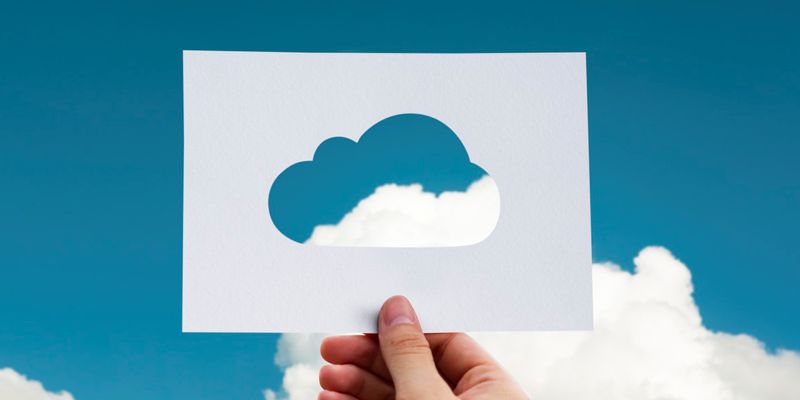Quand on parle de « Cloud » on pense d’abord à des espaces de stockage de données, tels que Dropbox, GoogleDrive ou OneDrive. On image cela comme des casiers personnels fermés à clé. Mais c’est bien plus que cela…
Imaginez un peu…
Un ordinateur familial
Vous avez une personne qui l’administre, le grand chef et 2 ou 3 utilisateurs. Chacun peut accéder à ses données personnelles. Toto ne peut pas voir les dessins de sa petite sœur Julie, ni elle accéder aux jeux de son grand frère. Mais le grand chef lui, peut tout voir. Il peut censurer, bloquer voir supprimer l’accès.
Maintenant changeons d’échelle… imaginez…
Un ordinateur professionnel
Au travail, la configuration est un peu différente. Votre entreprise utilise un serveur central. Une sorte d’ordinateur, assez puissant pour traiter les requêtes de tous les collaborateurs connectés en même temps sur le réseau de l’entreprise. Sur ce serveur elle stock toutes les données de l’entreprise, les logiciels vous permettant de travailler et le résultat de votre activité. L’entreprise est dans ce cas, la grande cheffe et les données lui appartiennent.
Maintenant changez encore une fois d’échelle… imaginez encore plus grand…
Et vous trouverez le « Cloud »
La technique du « Cloud » permet de stocker des données dans des ordinateurs super puissants et de les rendre accessibles, grâce à internet, à des milliers de personnes, indépendamment du lieu ou de l’heure.
Les services utilisant la technique du « Cloud » administrent ainsi des milliers de banques de données utilisateurs et amassent une gigantesque quantité de données, dont ils font en gros ce qu’ils veulent.
Qui utilisent la technologie du Cloud aujourd’hui ?
Quasi tout le monde mais à des échelles différentes.
Dès le moment où il y a un espace utilisateur « personnel » avec stockage de données, il y a utilisation de la technologie « Cloud ».
Il y a par exemple Google. D’un côté il vous donne accès gratuitement à ses applications. Et de l’autre côté, il enregistre et stock toutes vos données personnelles, votre activité en ligne et utilisation que vous faites de ses applications. Microsoft et Apple en font de même.
Il y a aussi tous les réseaux sociaux (Facebook, LinkedIn, Twitter etc. ), tous les sites de stockage et de partage d’images et de vidéos (Flickr, Instagram, YouTube, Pinterest, Vimeo, Dropbox etc.), tous les sites web où vous vous inscrivez et devenez membres etc… et même moi.
On comprend mieux pourquoi ces services en ligne sont à utiliser avec précaution.
En effet, chaque prestataire est le grand chef et a les pouvoirs d’administrateur sur vos données. C’est lui qui va définir dans quel pays vos données sont stockées, l’étanchéité des cloisons entre chaque espace utilisateur et l’usage qu’il va faire des données que vous lui fournissez, volontairement et involontairement.
Même si j’apprécie les avantages qu’offre le cloud
- Le fait de pouvoir travailler tout en synchronisant au fur et à mesure avec un espace sur le « cloud ».
- Les interactions instantanées avec mes contacts.
- L’utilisation des applications qui simplifient la vie : Recherche Google, Google Maps, Google Image, YouTube, Google Traduction etc.
Je prends aussi conscience des dangers du cloud
- Le risque de perdre mes données, si le site qui les sauvegarde, ferme ou est fermé par la loi. (Ex. Mega Upload).
- Le non-respect de ma vie privée.
- L’hébergement hors frontière de mes données est soumis à d’autres lois.
- Le fait de devenir un produit que l’on vend aux agences de marketing.
- L’usurpation d’identité devenant une réalité.
Les précautions à prendre
- Faire une sauvegarde des données et les conserver chez soi en lieu sûr. (résout le point 1)
- Ne pas mettre sur le « cloud » des données sensibles ou pouvant le devenir (limite les risques 2 et 3)
- Considérer Internet comme un lieu public où tout se sait. C’est du sérieux. Ce n’est pas un jeu « just for fun ». (limite les risques 4 et 5)
(Photos : CC0 @ pexels.com)

